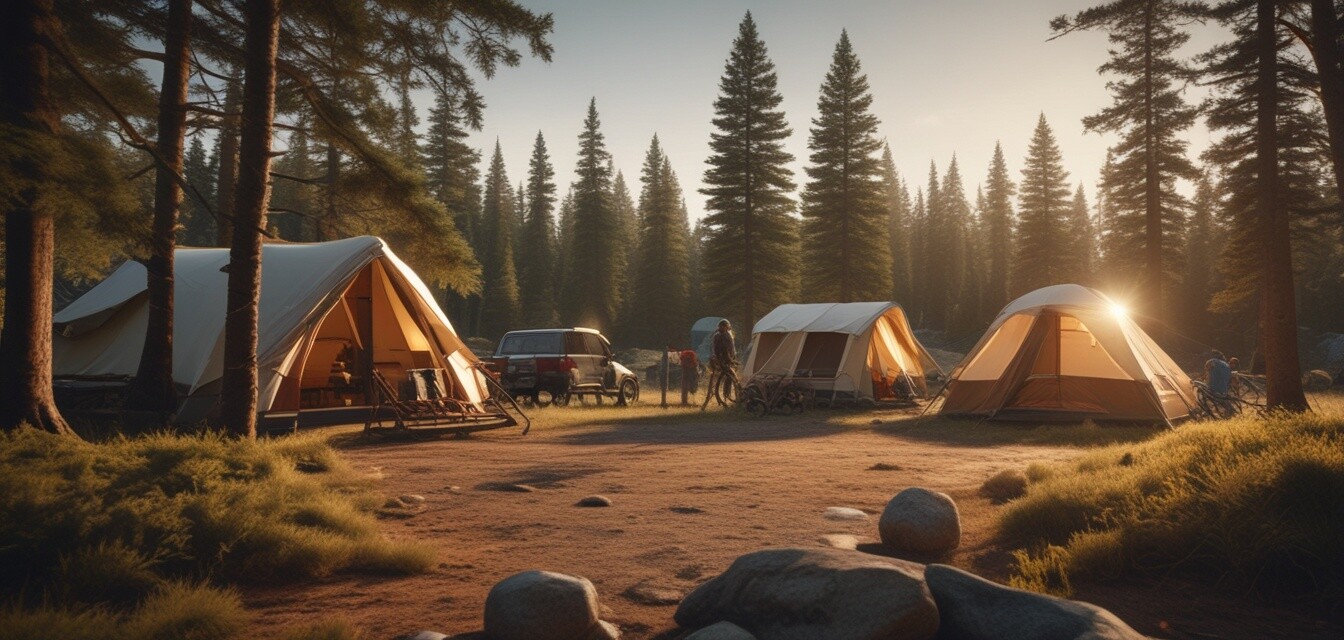
Essential gear for camping with special needs
Key Takeaways
- Choosing the right gear can enhance the camping experience for individuals with special needs.
- Accessibility features like ramps and adaptive equipment are crucial for safety and comfort.
- Planning and preparation are essential for a successful camping trip.
- Considerations for safety and navigation should not be overlooked.
- Incorporating personal preferences into gear selection fosters a positive camping experience.
Camping can be a wonderful source of adventure and relaxation, but when it comes to individuals with special needs, careful planning and the right gear are essential. This guide will provide you with key insights into selecting camping gear that accommodates varying needs, ensuring that everyone can enjoy the great outdoors comfortably and safely.
Understanding special needs in camping
When preparing for a camping trip, understanding the specific needs of individuals who will be joining is crucial. Special needs may include physical disabilities, sensory sensitivities, or developmental conditions. It’s important to remember that gear should not only be functional but also contribute to a positive experience.
Common needs to consider
- Mobility issues
- Visual or hearing impairments
- Heightened sensory sensitivities
- Developmental disabilities
Essential gear for a great camping experience
Here’s a breakdown of various camping gear components and considerations for campers with special needs:
| Gear Type | Features to Look For | Suggested Adaptations |
|---|---|---|
| Tents & Shelters | Wide door openings, easy setup | Ramps for wheelchair accessibility |
| Sleeping Gear | Comfortable mattresses, temperature regulation | Specialized sleeping bags for added warmth |
| Seating Solutions | Comfort and stability | Adaptive chairs with armrests and support |
| Cooking Equipment | Accessible height and ease of use | Portable stoves with adjustable heights |
| Safety & Navigation Gear | Simple-to-use devices | GPS devices and brightly colored maps |
Choosing the right tent
The tent is arguably the most crucial piece of camping gear. When selecting a tent for individuals with special needs, consider the following:
- Accessibility: Ensure the entrance is easy to navigate and has no obstructions.
- Size: Choose a tent that provides ample space for movement and comfort.
- Stability: Opt for a tent that holds up well against wind and rain.
Tips for a successful camping trip
- Visit the campsite beforehand, if possible, to assess its accessibility.
- Involve individuals with special needs in planning their gear and activities.
- Always have a communication plan in place and bring necessary devices.
- Prepare for sensory needs by packing comfort items such as headphones or fidget toys.
Safety considerations
Safety should always be your first priority when camping. Here are some recommendations:
- Ensure first aid kits are fully stocked and accessible.
- Have emergency contact information readily available.
- Educate the entire group about potential hazards in the area.
- Create a buddy system to ensure everyone is accounted for.
Navigating with ease
Proper navigation and orientation can significantly enhance the camping experience. Consider the following:
- Bring along tactile maps for those who are visually impaired.
- GPS devices that are easy to use can assist individuals who may struggle with traditional maps.
- Ensure paths and trails are well-marked for easy navigation.
Conclusion
The essence of camping lies in enjoying nature while feeling safe and comfortable. By choosing the right gear and planning ahead, you can create a positive experience for individuals with special needs. Remember, camping should be inclusive, fostering memories that everyone can cherish. If you're looking for more tips to enhance your camping experience, be sure to check our section on Camping Tips and Tricks.